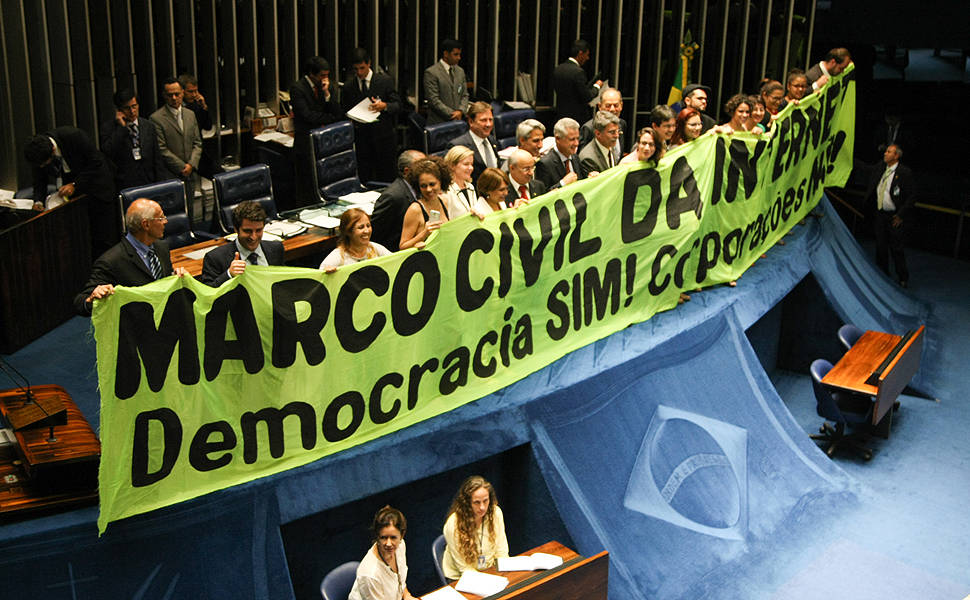Latest Photo Galleries
Brazilian Markets
17h36 Bovespa |
-0,07% | 124.646 |
16h43 Gold |
0,00% | 117 |
17h00 Dollar |
+0,29% | 5,1640 |
16h30 Euro |
+0,49% | 2,65250 |
ADVERTISING
Congress Approves New Internet Law
04/23/2014 - 09h24
Advertising
GABRIELA GUERREIRO
FROM BRASÍLIA
In a vote hastily orchestrated by the Presidential Palace, the Senate yesterday approved a kind of "Constitution" of the world wide web in Brazil.
As the Senate made no changes to the text approved by the Chamber of Deputies at the end of March, the bill now awaits the signing of president Dilma Rousseff, who sought to have the text approved before her participation today at the NetMundial conference.
Today´s event in São Paulo will discuss an international format of internet governance. Dilma is due to approve the bill today when it will be presented at the conference as sign of her mark on the sector.
Despite protests from the opposition requesting more time to review the document, the Senate discussed and voted the civil rights framework in under a month. The Chamber of Deputies had taken over three years.
The opposition is in favour of the bill but criticized the government´s haste in having it passed.
The civil rights framework for the internet is controversial as it has divided the interests of the government, telecommunications companies, internet sites as well as the federal police.
One of the main points is the so called "net neutrality" rule which prevents operators from discriminating against content according to type or origin and privileging access or interfering with the speed of the connection to specific sites.
Another change in the civil rights framework established that internet providers will only be responsible for third party content if they ignore judicial orders to remove it.
Pornographic content is an exception. Pages that show pictures or videos that violate the intimacy of third parties without their prior consent will also be made responsible for the violation.
This measure was included in the bill in response to the series of cases involving adolescents whose intimacy was exposed on sites as a form of "porno vengeance" by former partners.
In order for the bill to be approved, the government had to forego its original proposal which required the existence of local centers for storing user data.
Dilma defended this change in response to the news that Brazilian authorities, including herself, were spied on by the United States.
If the rule had been approved, large internet companies, such as Google and Facebook would have to have a physical presence in the country in order to store local user data.
The text already says that access providers must keep Ips and user connection times for a year. Sites such as Google will have to keep navigation histories for six months. Up until now, this had been left up to providers and sites.
TAI NALON contributed from Brasilia.
Translated by MILLI LEGRAIN




